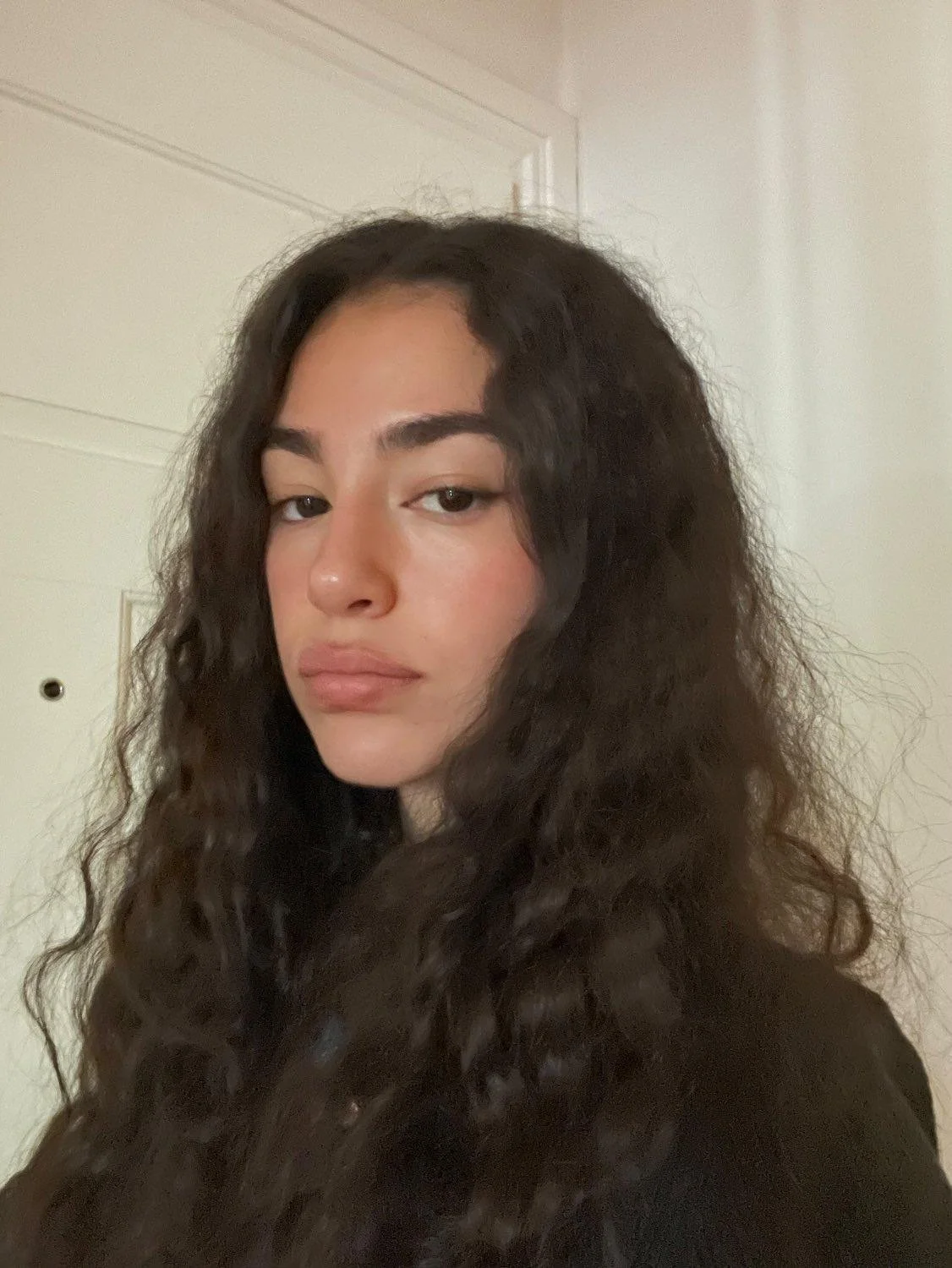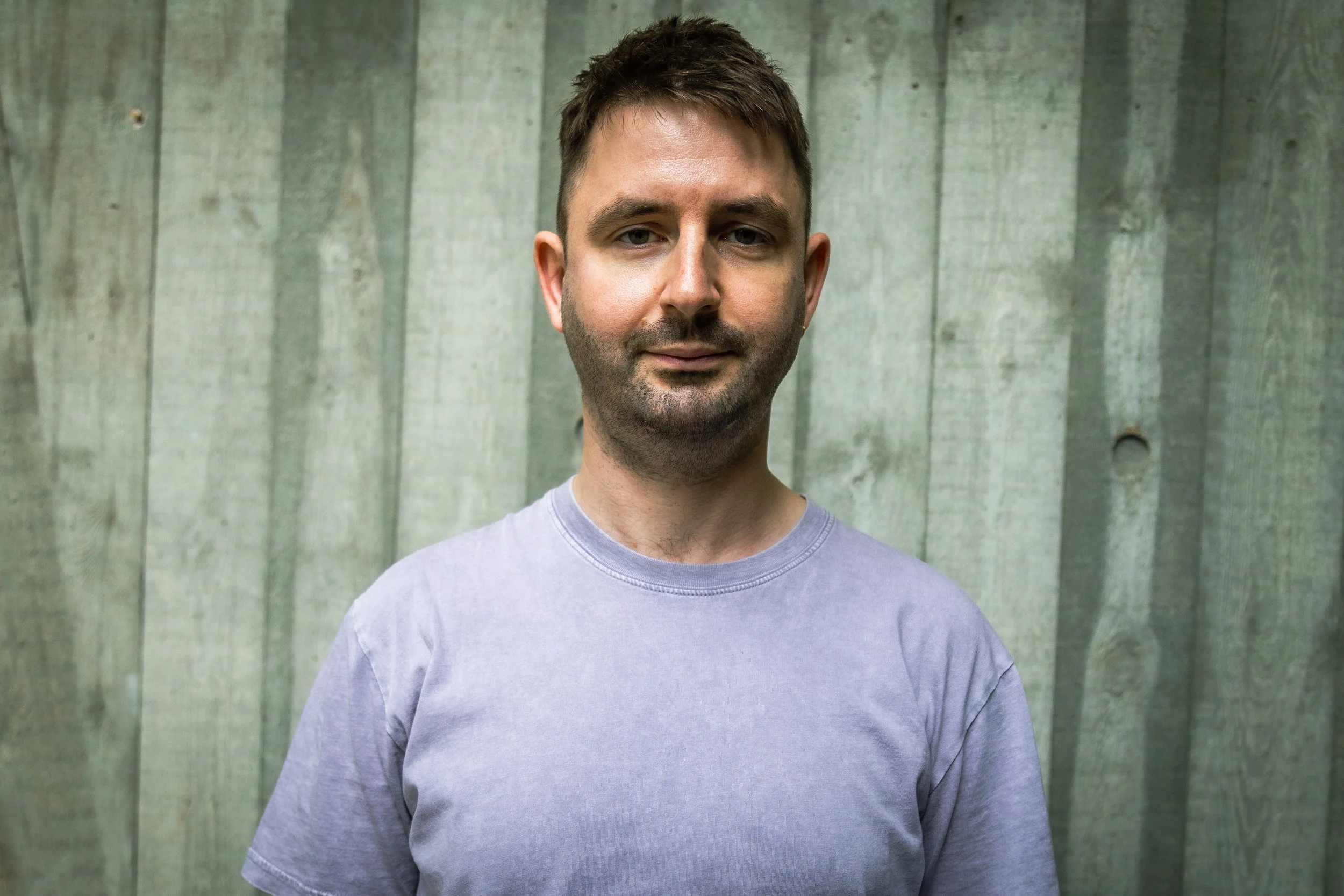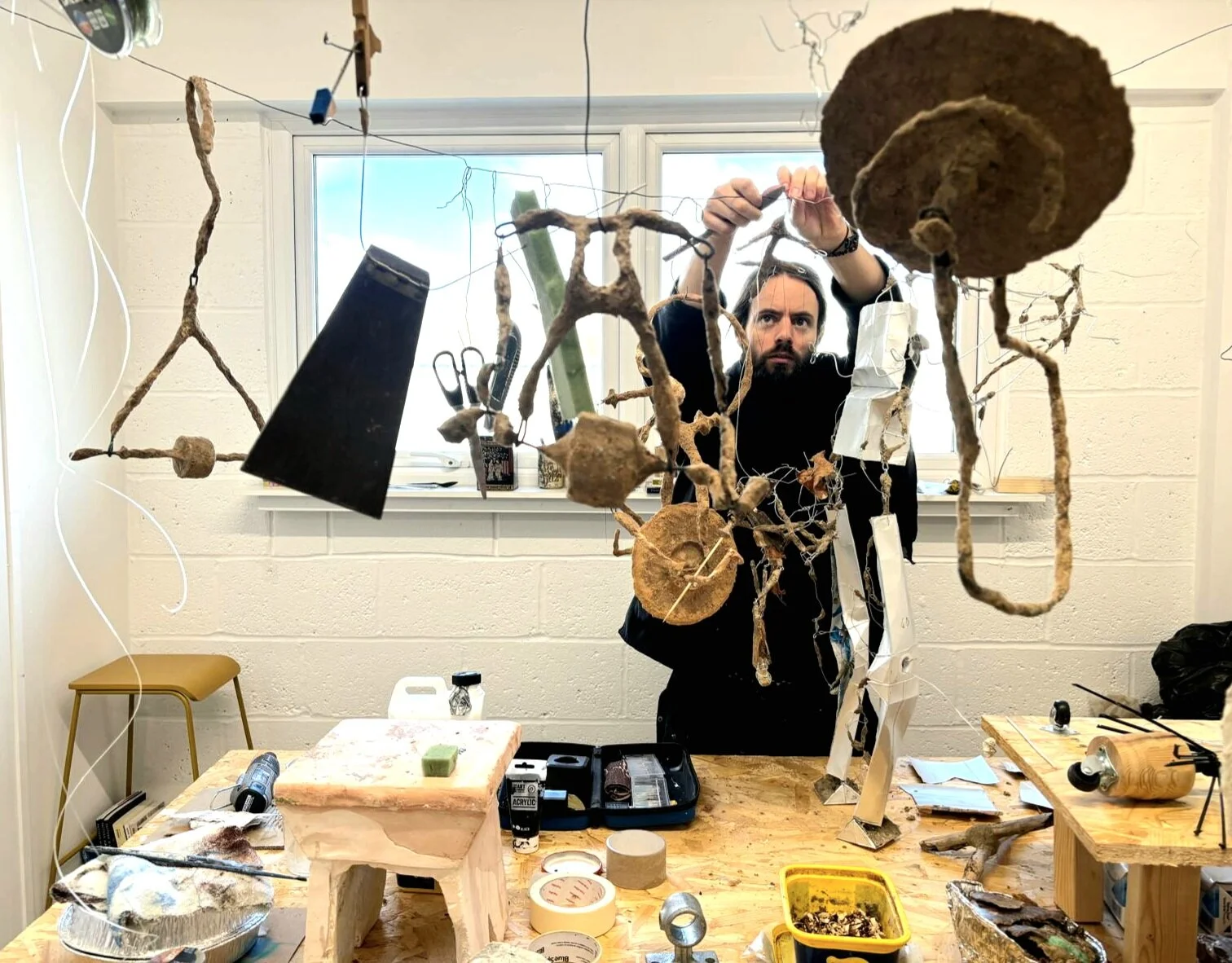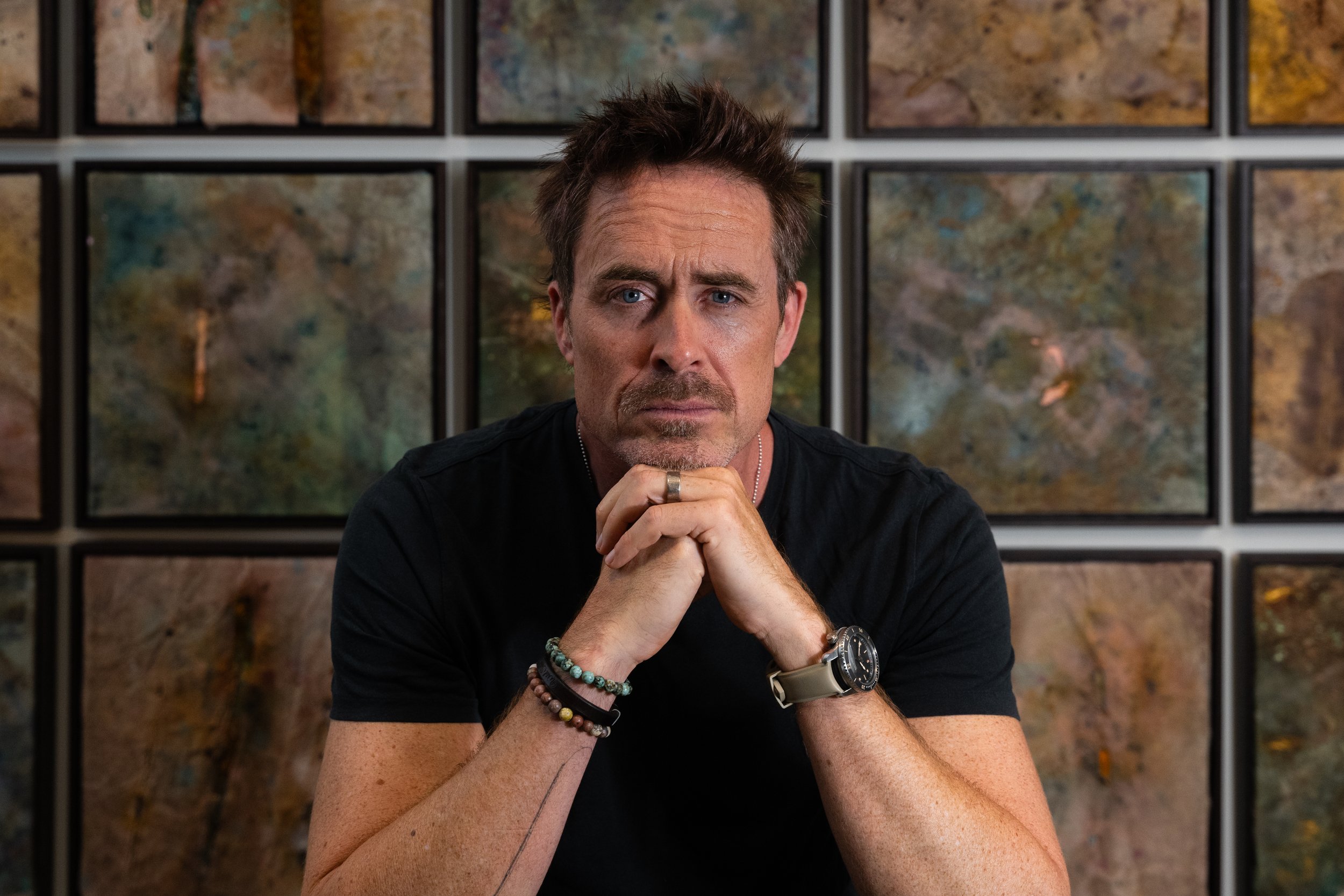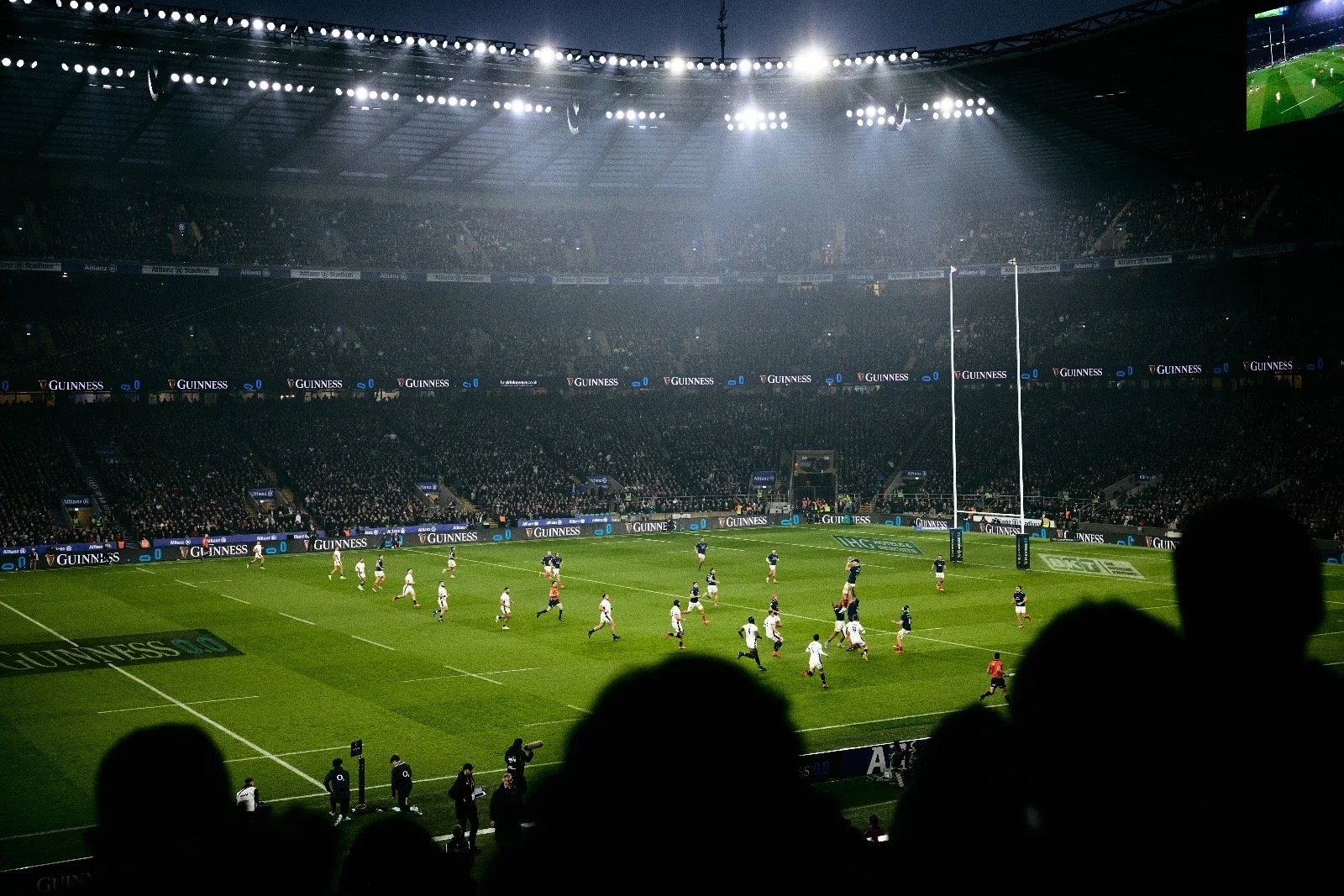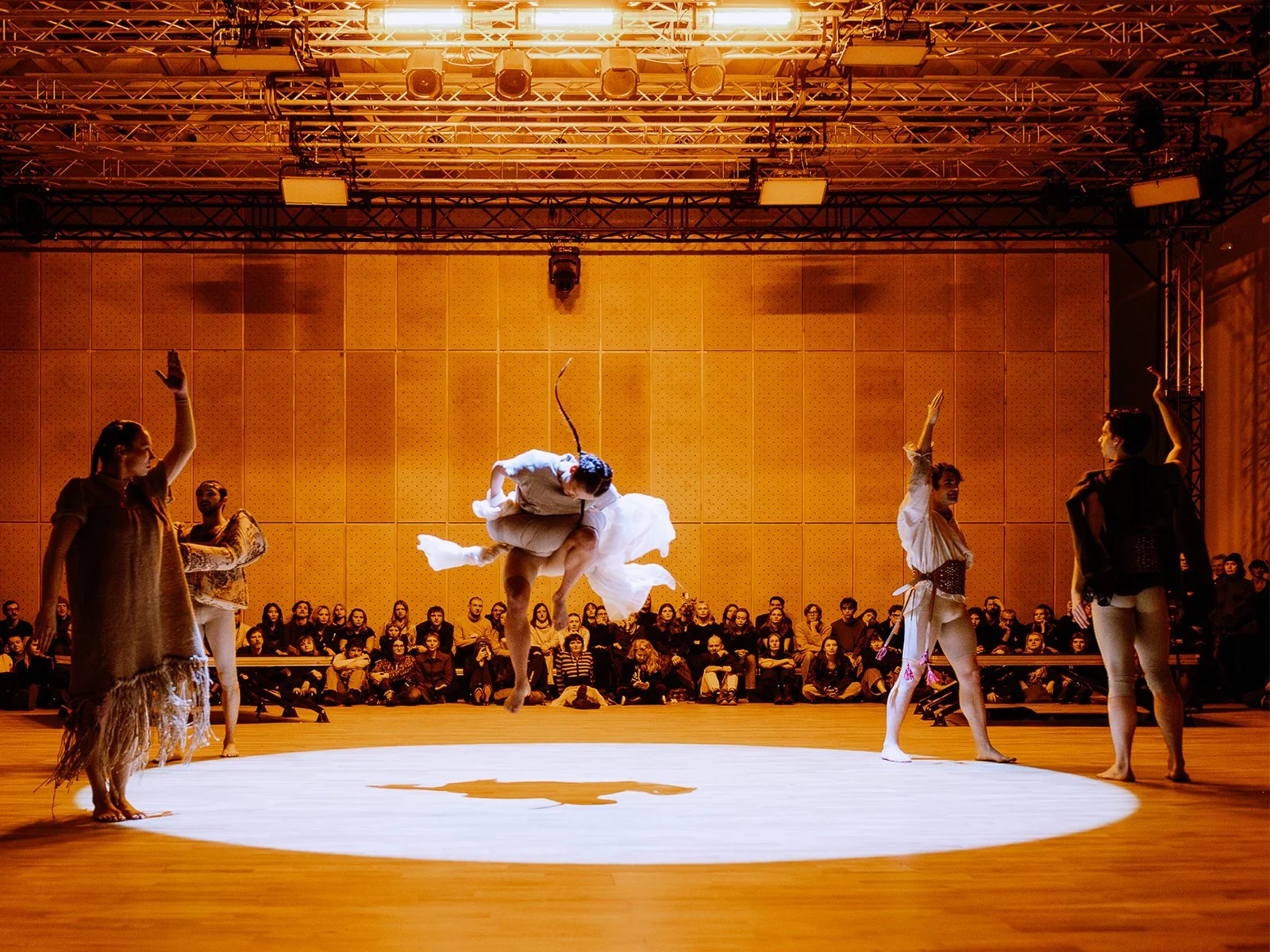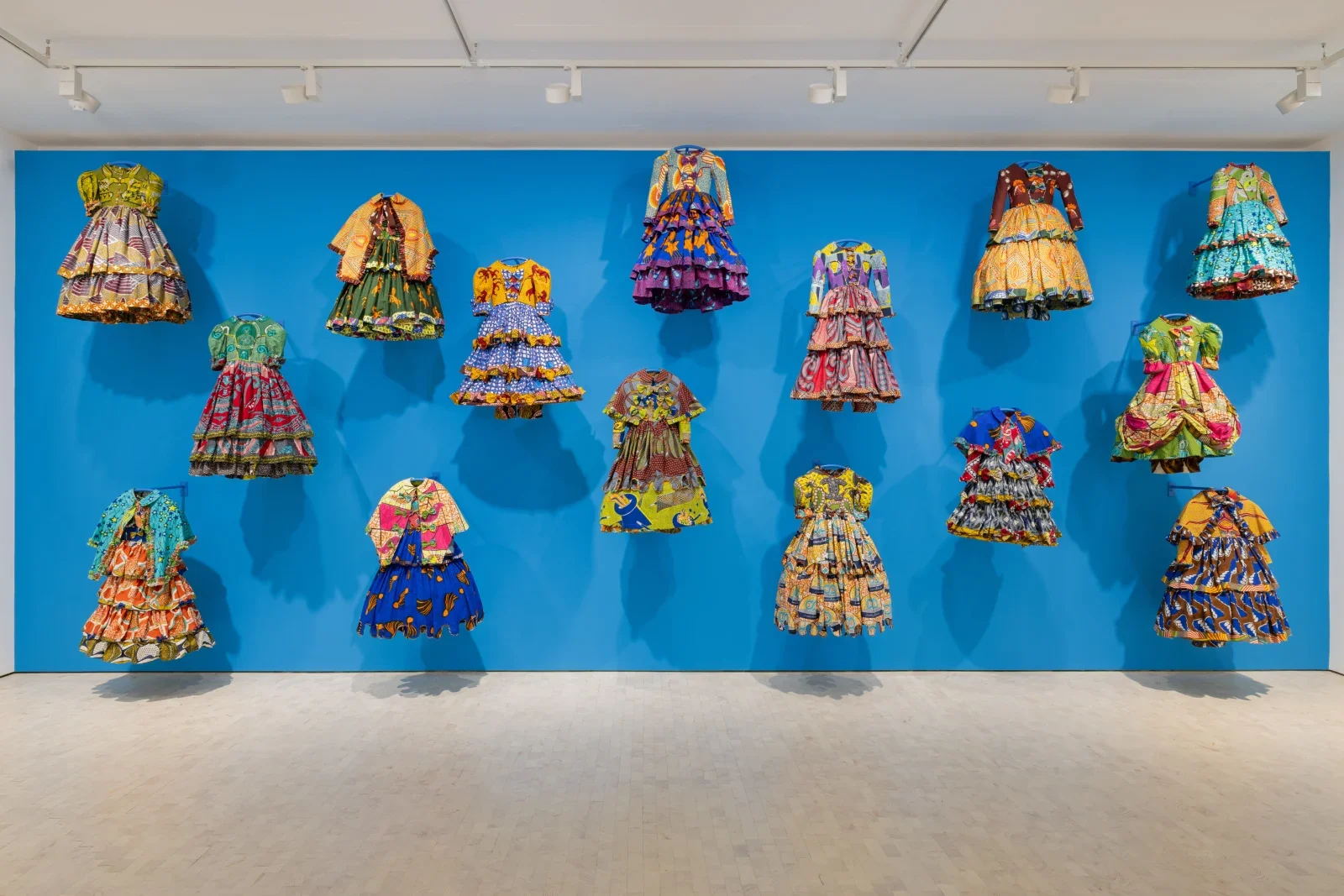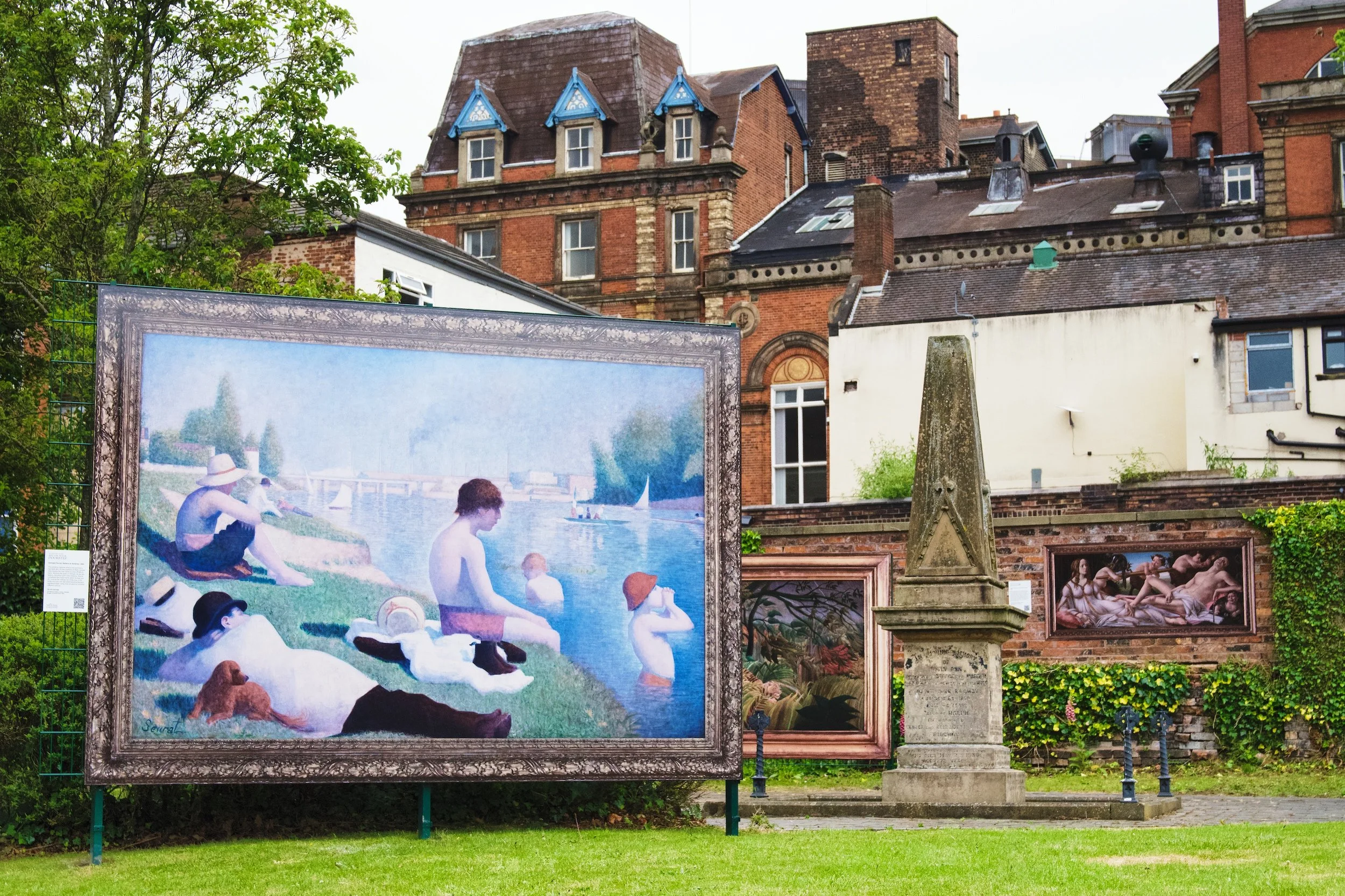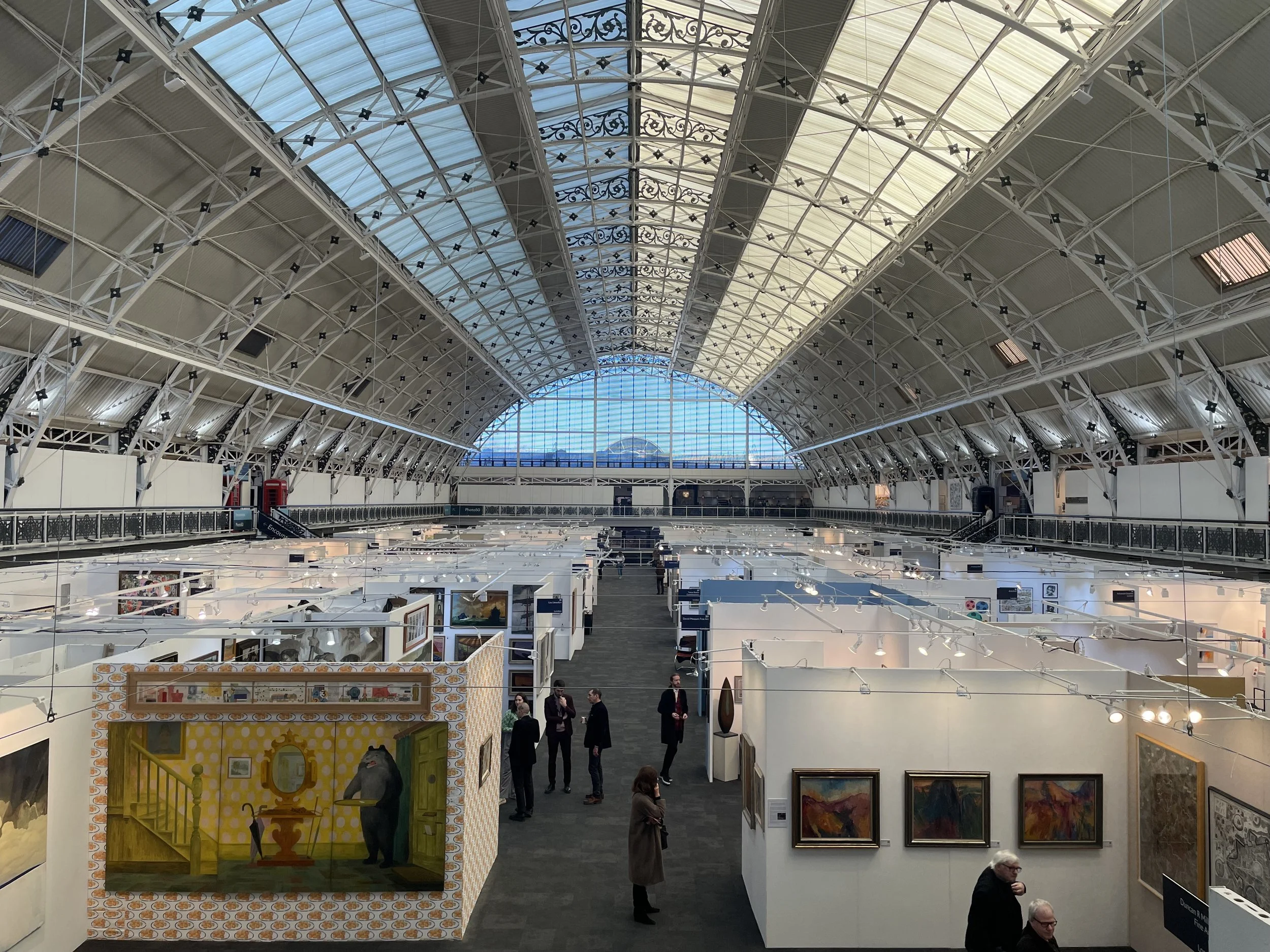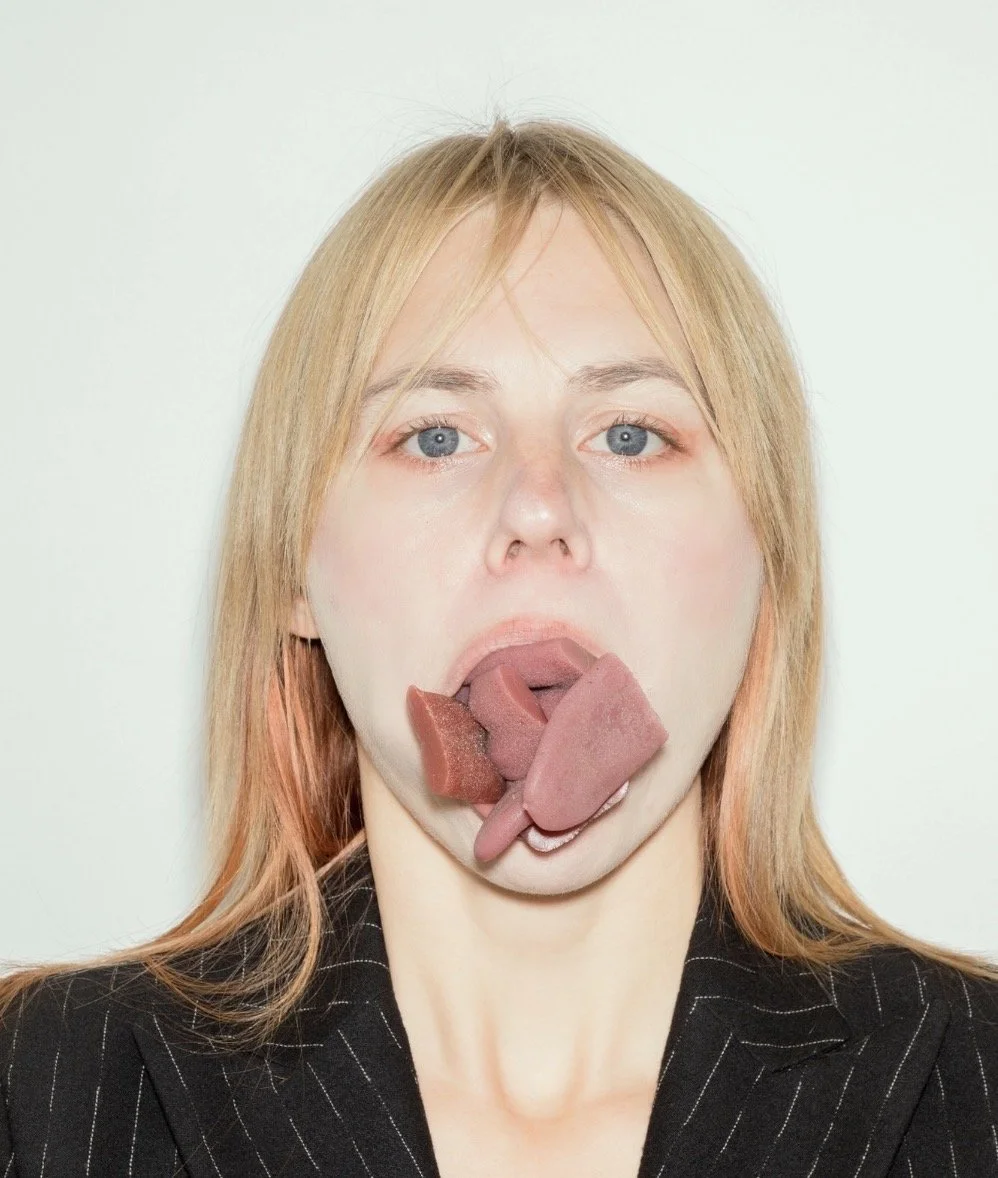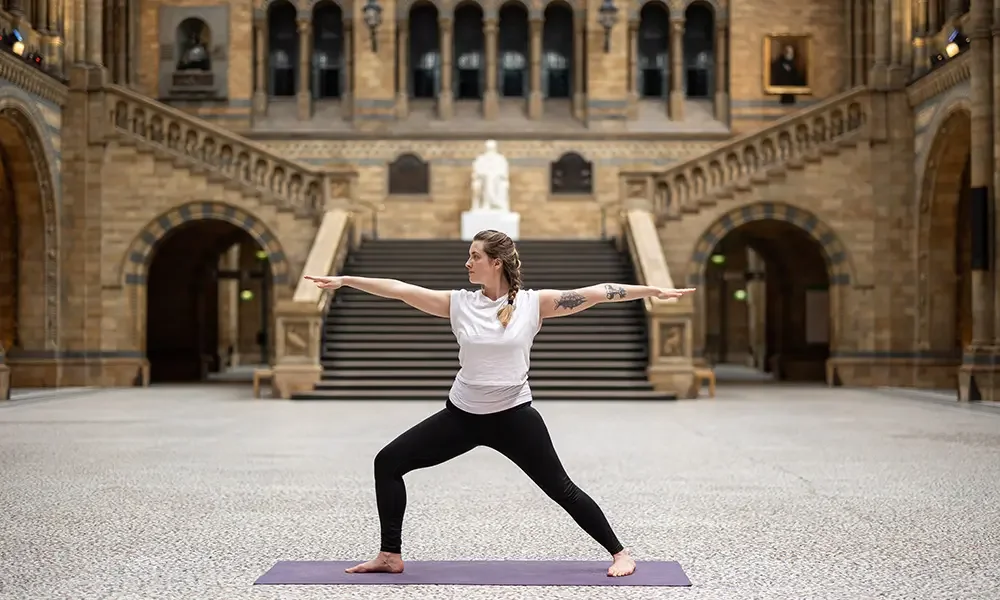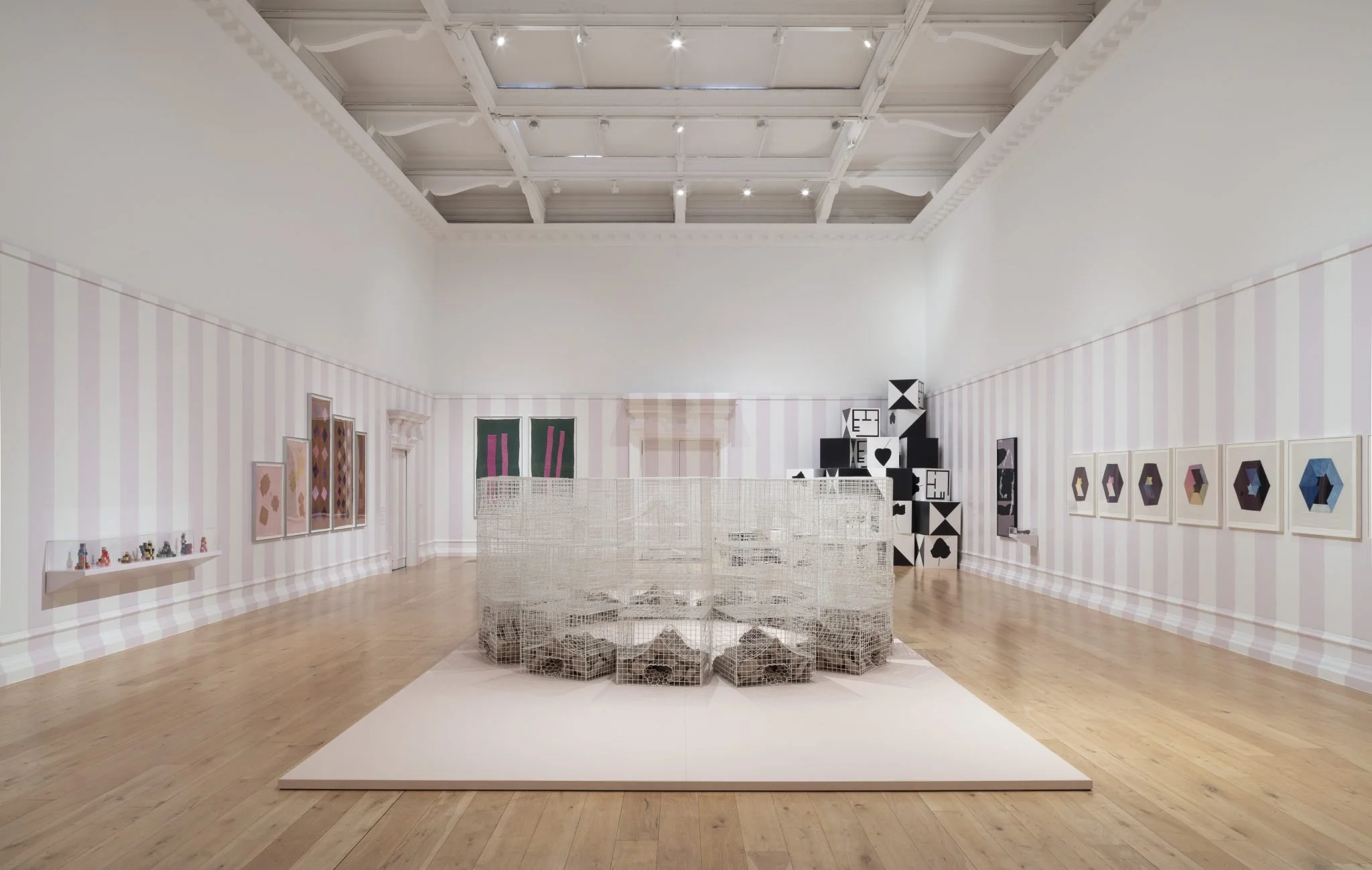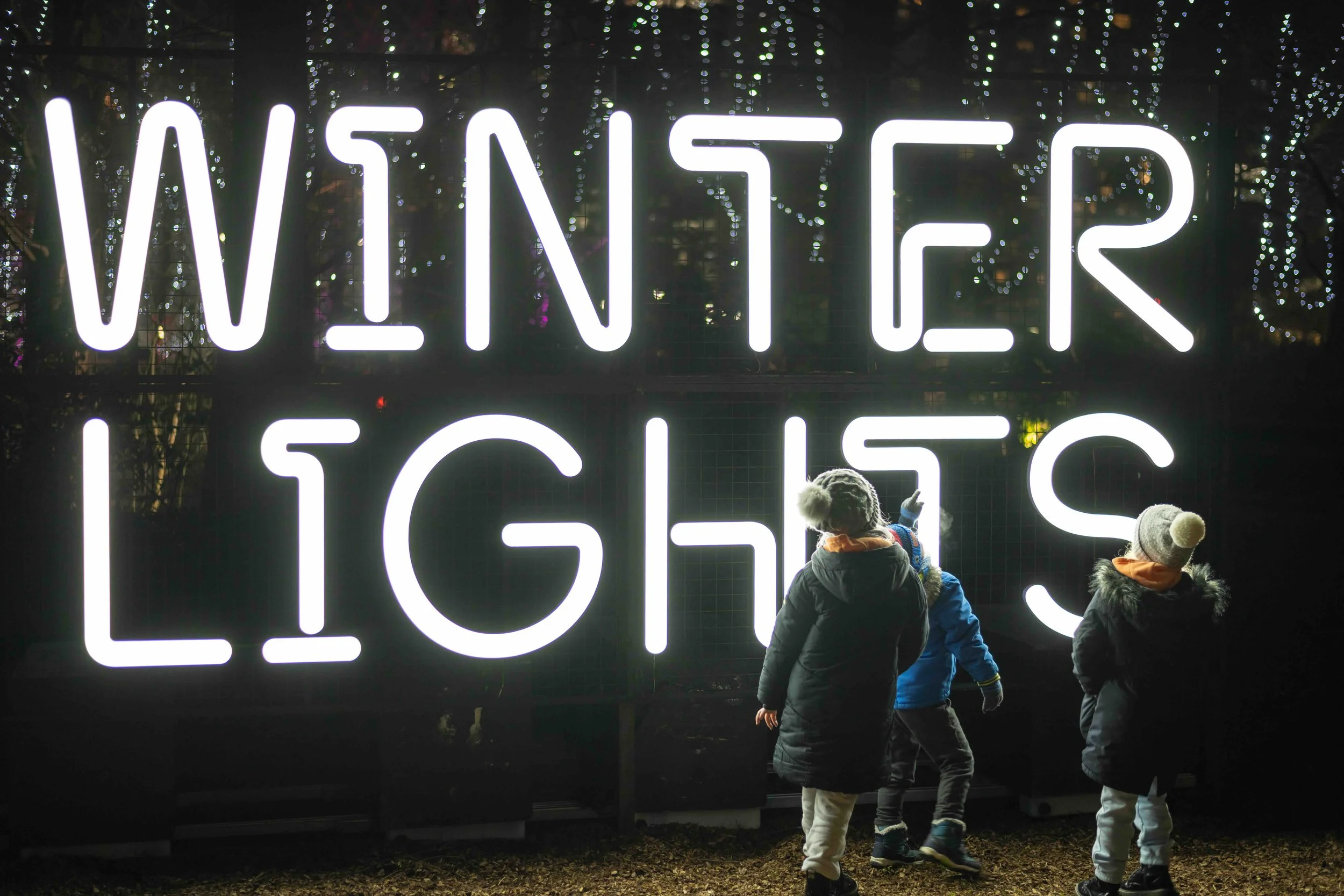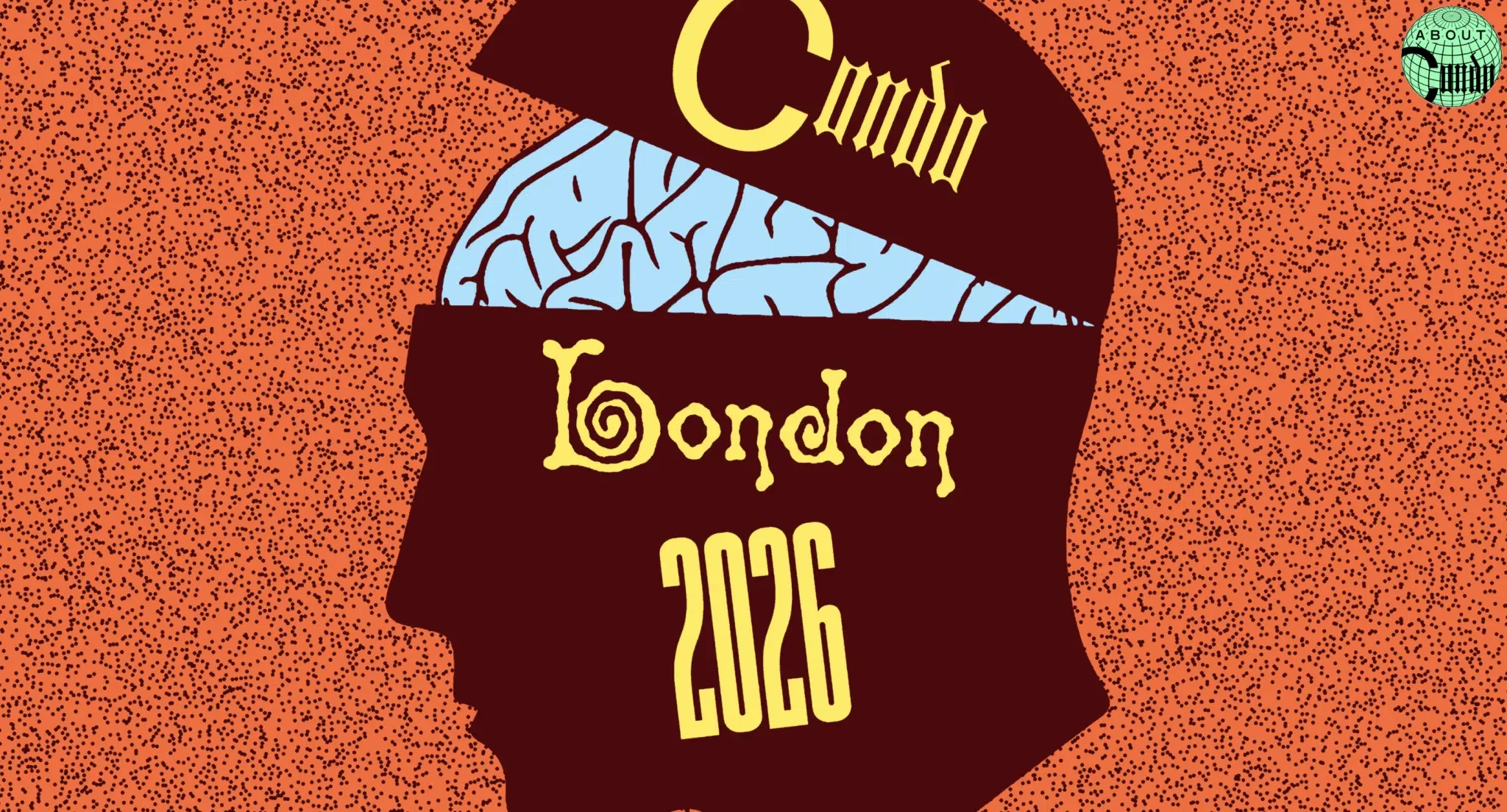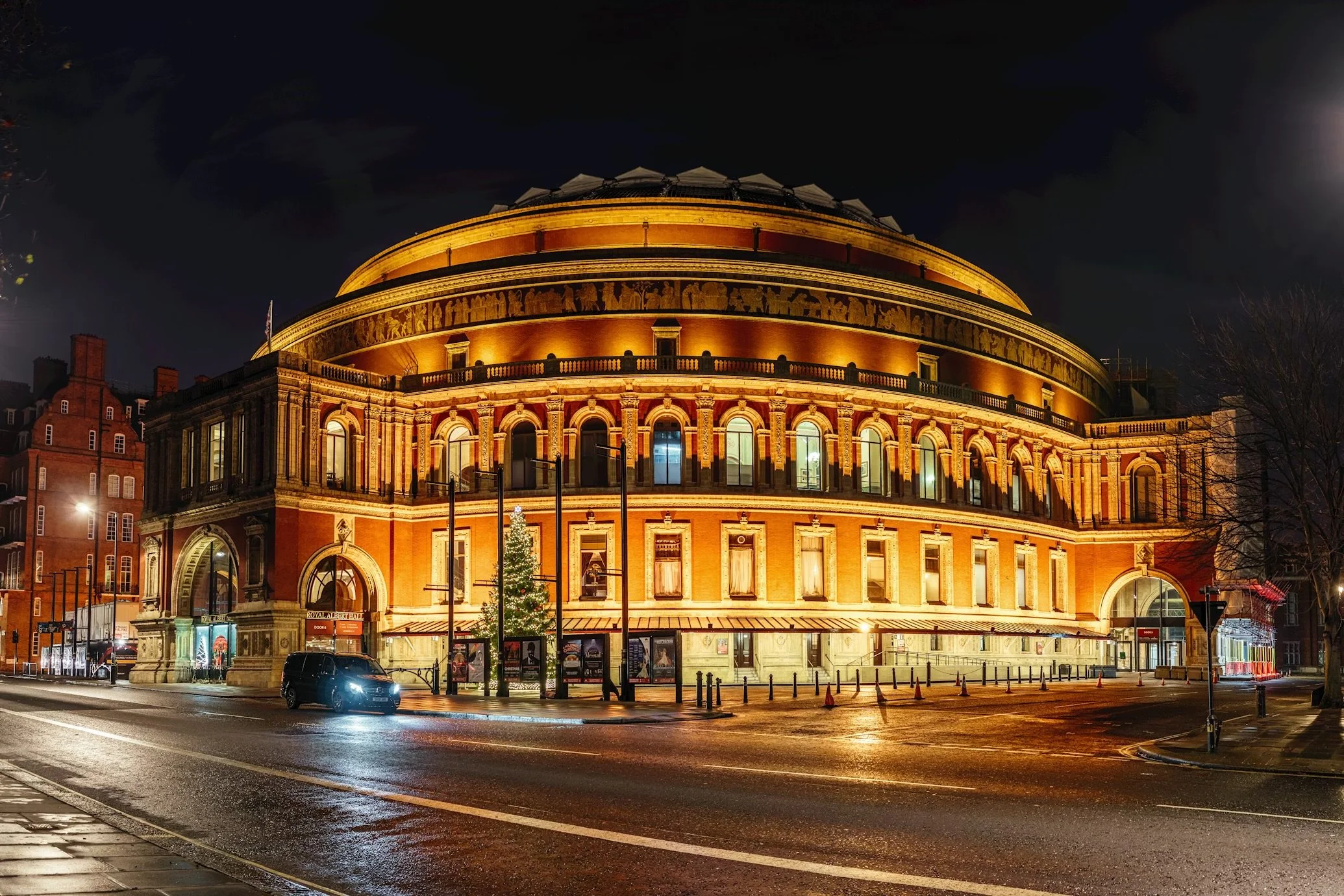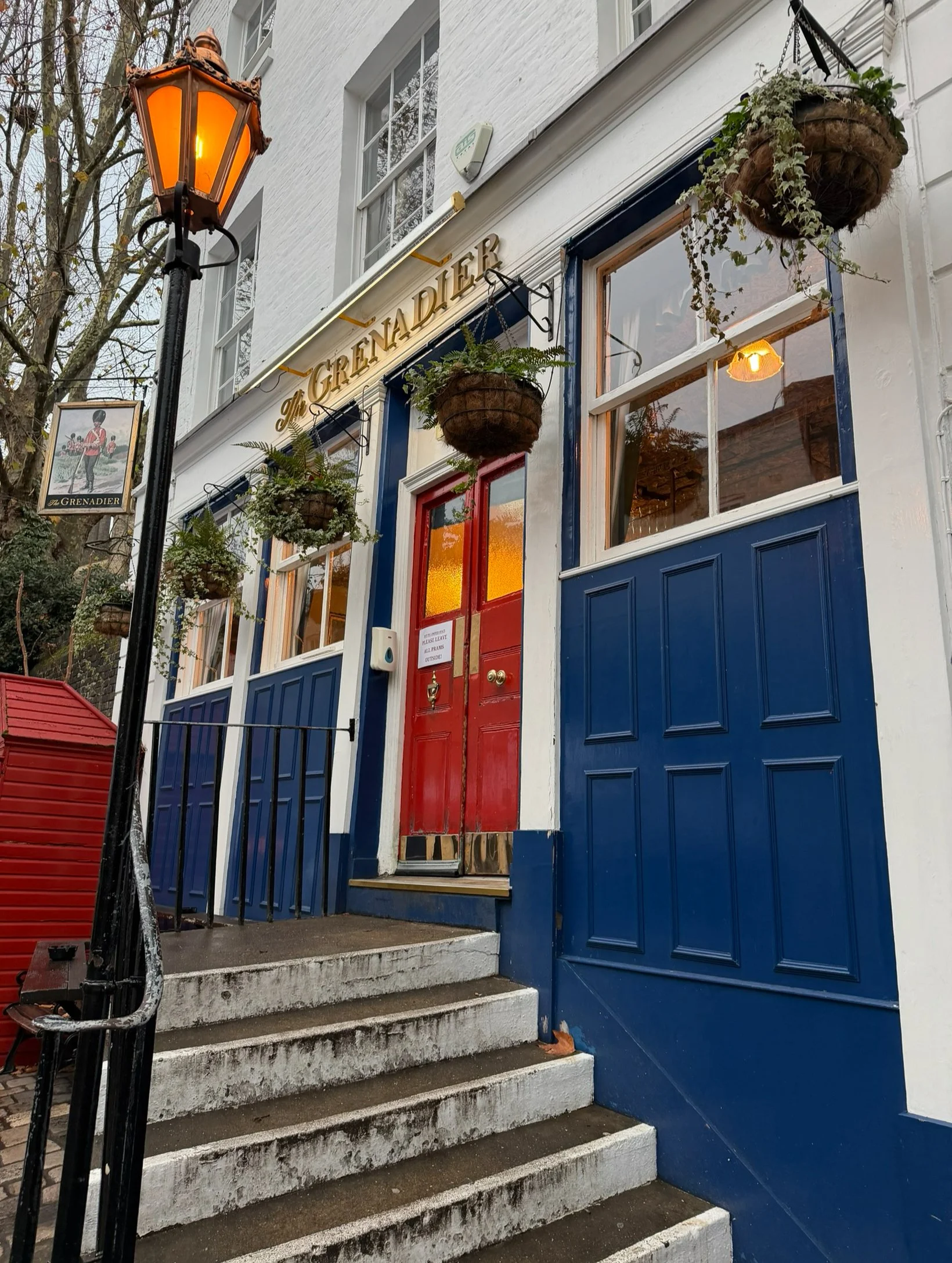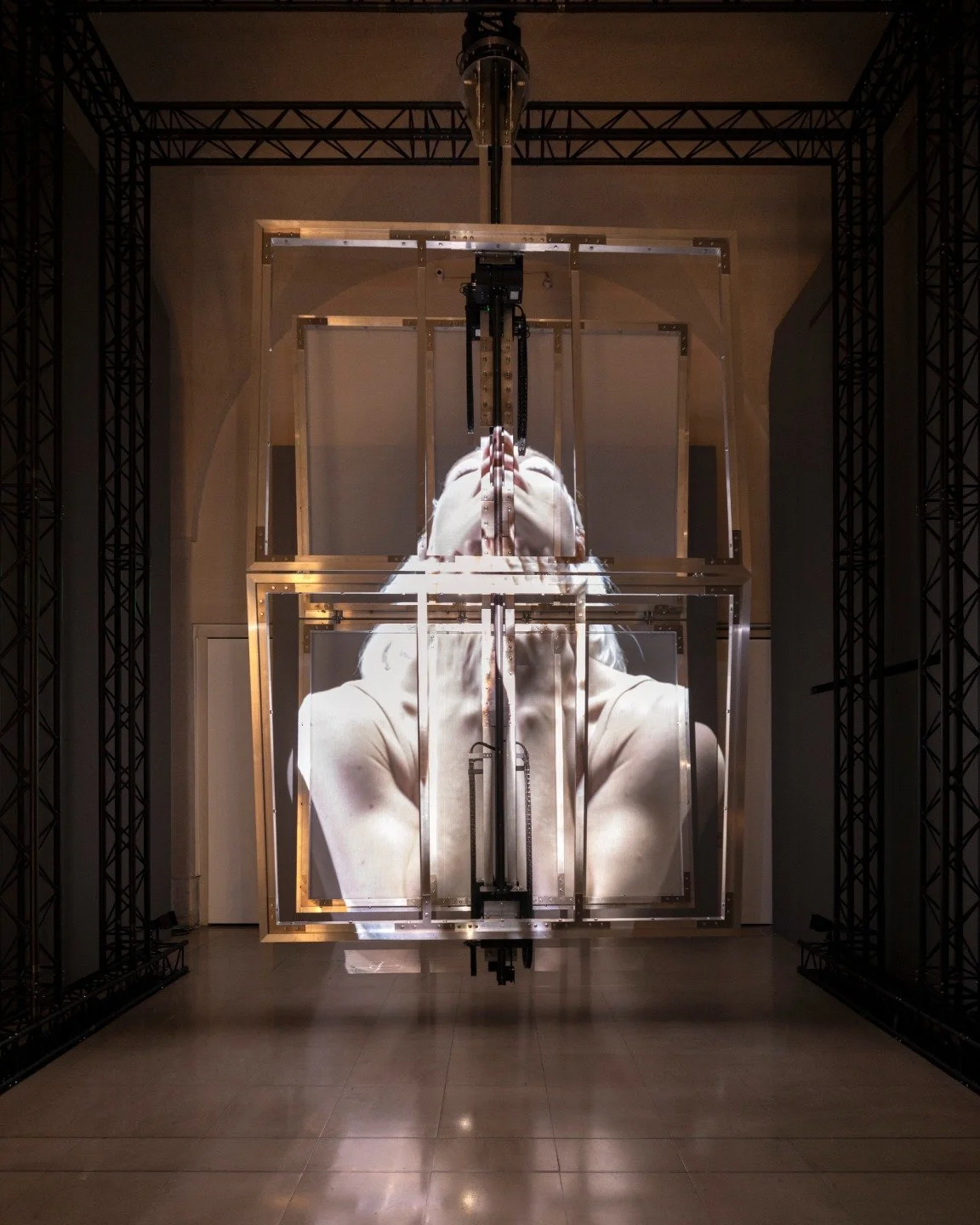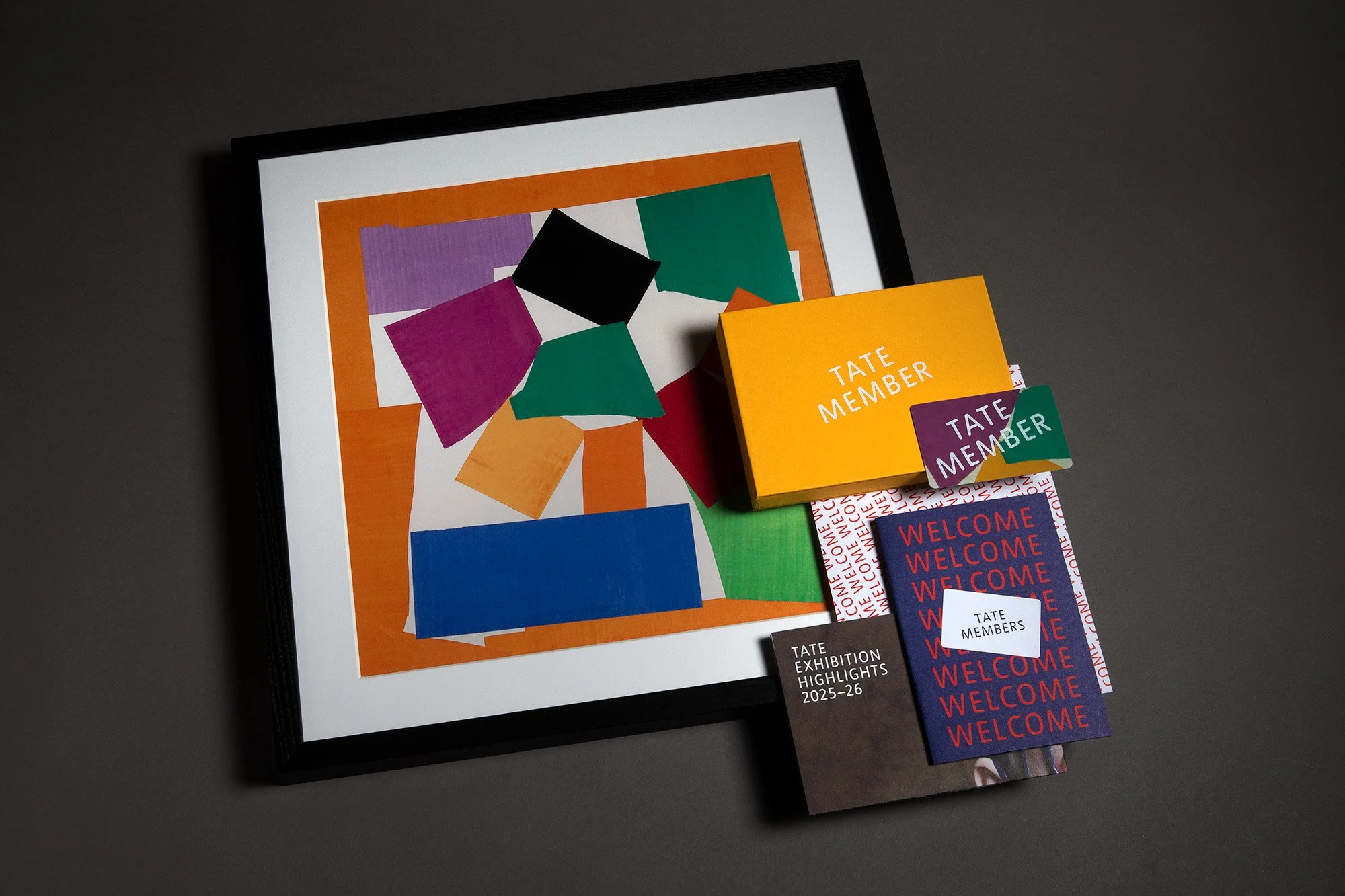In conversation with Łukasz Twarkowski
“The show has found relevance now around the development of AI and deepfakes. The question of authenticity has become very urgent in our lives and we don’t really know how to deal with this.”
- Łukasz Twarkowski
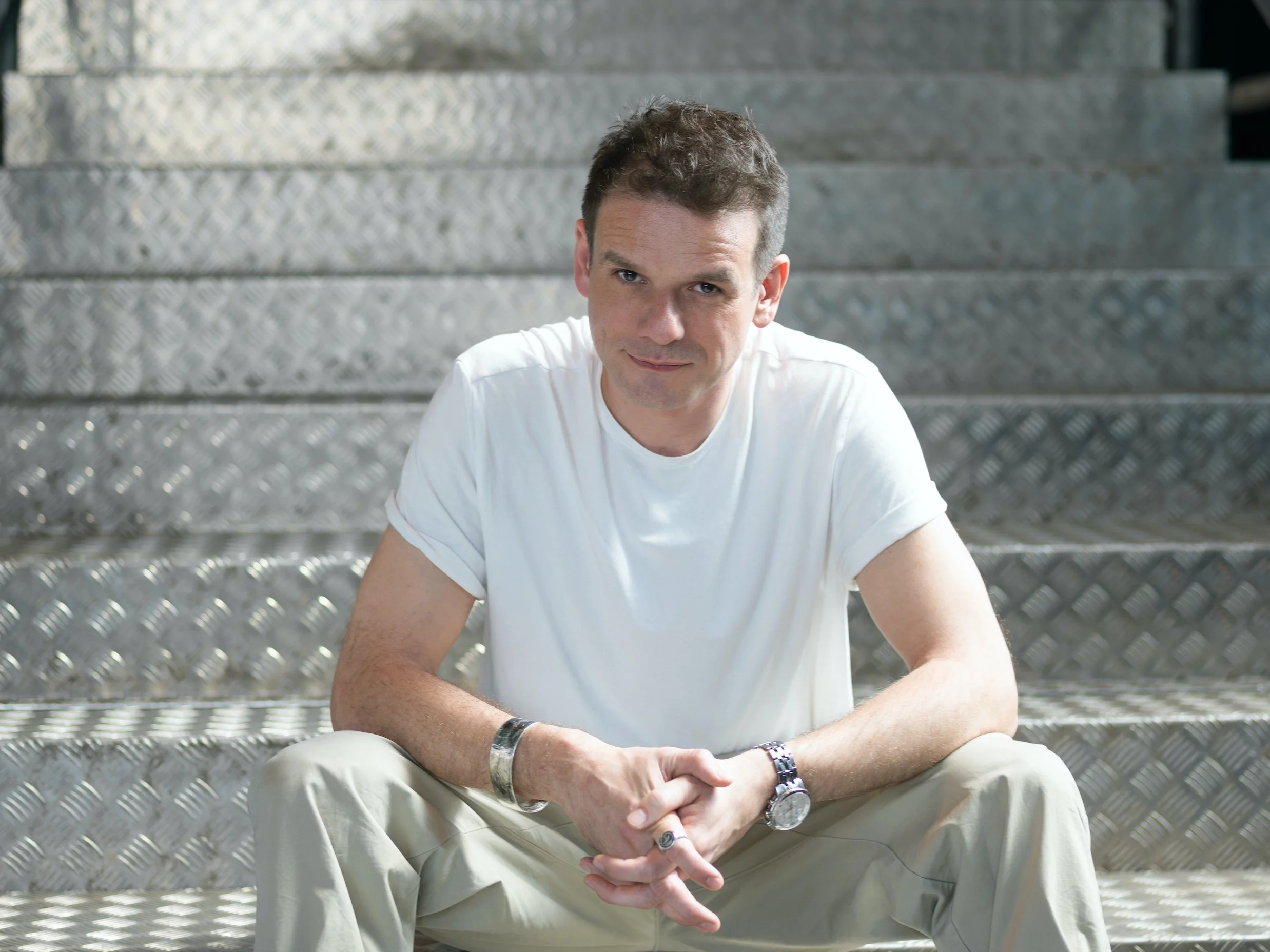
Łukasz Twarkowski Credit Beatrice Borgers.
Director Łukasz Twarkowski combines theatre and many other artforms to create productions which extend reality through multimedia. A crucial element of Twarkowski’s creative work is investigating the ability and limitations of theatre as a medium and tool of communication. By permanent deconstruction of narratives, questioning the fixed habits of the audience and by meaningful usage of new media, Twarkowski creates a new, original language of stage performance based on multimedia and, more widely, digital technologies. In using these, Twarkowski analyses and observes increasingly complex relations between the Real, the Symbolic and the Imagined. He has won prestigious international awards over the past decade for Best Direction, Best Show, and Best Ensemble, most recently winning the Premi Ubu in Italy, Faust Theatreprise in Germany and Distinguished Artist Award by International Society of Performing Arts. His work is programmed at the most important festivals and stages around the world, and has been invited to be the associate artist of the Onassis Foundation (2023-24) and Piccolo Teatro de Milano (from 2025).
ROHTKO makes its UK premiere at the Barbican Theatre from 2 - 5 October 2025. barbican.org.uk
ROHTKO revisits one of the most infamous scandals in the art world: the sale of a forged Rothko painting for over $8 million in the early 2000s, one episode in a larger forgery operation that went undetected for years. What drew you to this story?
This was actually not the starting point of the show, we discovered it during our research phase. We had already been working on a performance that would deal with the concept of originality, and abstract expressionist paintings.
As we were making this show with Latvia’s Dailes Theatre, we were thinking about Mark Rothko. I wanted to find some part of the topic which connected to the place where we were working, and he is considered by Latvians to be the greatest Latvian painter.
Around this time I was working in China and I discovered Byung-Chul Han’s writings. One of his books, Shanzai, really saved my life and made me understand that we are living in two different paradigms and the Occidental and Oriental paradigms are untranslatable. There are some notions which we can discuss, even using the same words, but they mean completely different things to different cultures.
So we were digging around these topics but not knowing how to put it all together. This is connected to our way of working - we start rehearsals without a script, using improvisations, lots of R&D with actors.
Miraculously, just before we were meant to start rehearsals, my agent called me and told me about the documentary they’d just released on Netflix Made You Look: A True Story About Fake Art, which connected all the dots. I had real shivers watching it because there was Rothko, Chinese forgery, this idea of originality. And that’s how we started to incorporate it into our show.
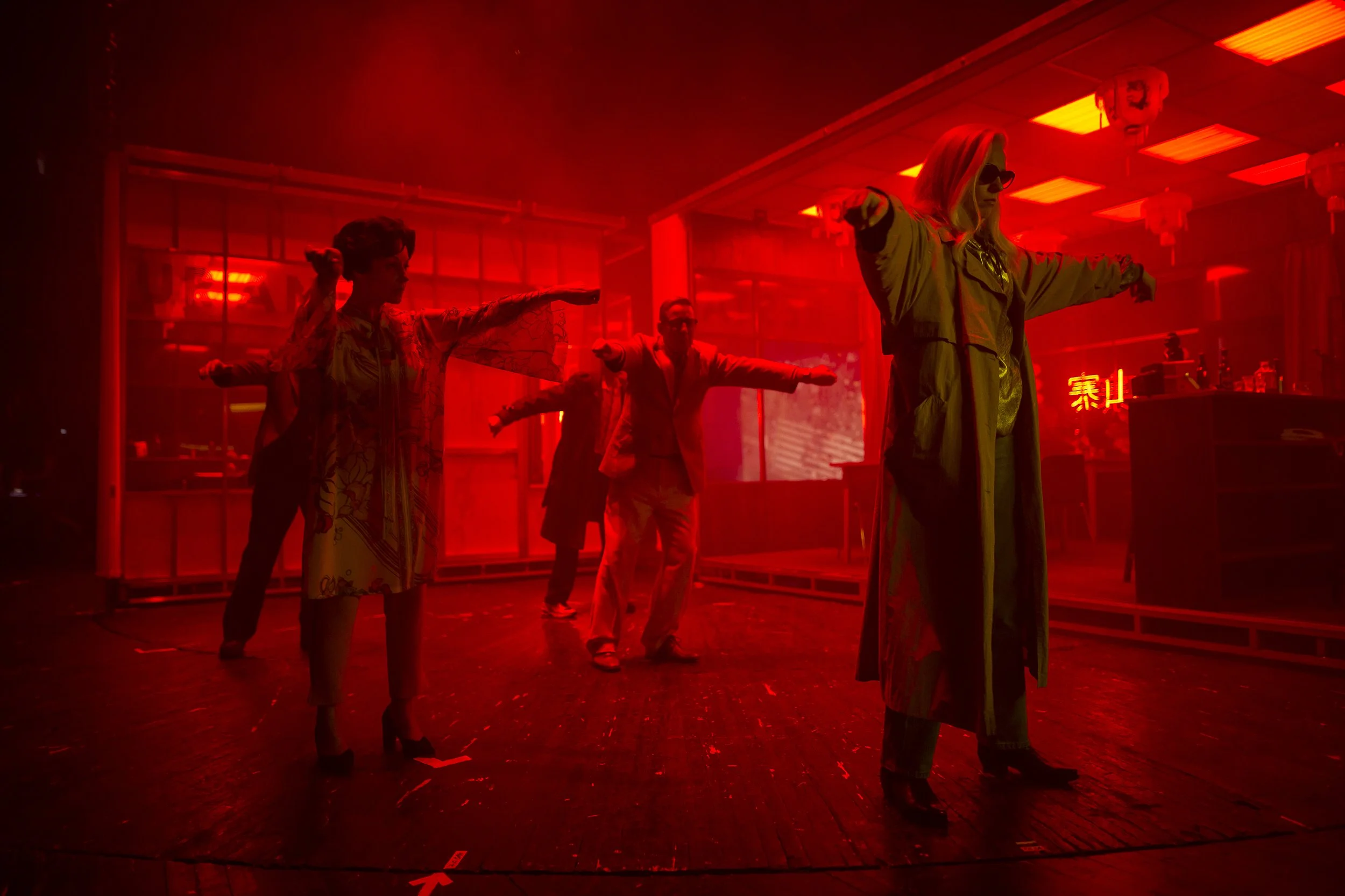
ROHTKO directed by tukasz Twarkowski, text & dramaturgy by Anka Herbut, produced by Dailes Theatre. UK premiere at the Barbican Theatre, Thu 2 - Sun 5 Oct 2025. Photographer credit: Arturs Pavlovs
You’ve spoken about reading Byung-Chul Han’s Shanzhai while in China, and how it challenged Western ideas about originality and authorship. How did those ideas shape your vision for the production?
Absolutely, these were the starting point. The first inspiration for the show was Shanzhai and thinking about the different paradigms we are living in. Many of our company’s works deal with how to deconstruct certain constructs that we find obvious and we assume that they are fundamental world-wide. The three biggest constructs of our civilisation - religion, money & art - objectively do not exist, it is just social agreement. But we were and we’re still willing to kill ourselves over these things which do not exist.
This is similar with the concept of originality. It stems from the basic idea of things having a beginning and end. But in Oriental culture, there is no such concept, everything is in a process of eternal change. So if there is no beginning or end it means nothing can be ‘original’.
It’s so much connected to Rothko himself because he was using pigments which have since bleached completely. So now, a lot of his paintings do not have anything in common with the moment when they were created. In the case of abstract expressionist paintings where colour counts so much, we could ask ourselves “are we still observing the works which were painted by Mark Rothko”? Wouldn’t it be more original if we had a perfect copy of how it was in the moment of creation?
We were also inspired by the boom of NFTs at the time, and how do we position the question of originality and possible copies? An NFT is undifferentiable from the original, but of course we find a way to monetise it. So even though it’s exactly the same file, there is an ‘original file’ because you have proof of payment in the blockchain.
All this idea of original and copy is extremely fascinating. There’s an example given in Shanzhai of the Ise Jingu shrine in Japan. It’s destroyed and rebuilt every 20 years and isn’t on the Unesco Heritage list because they decided it’s not ‘original’ anymore.
While I was working in China, I asked this question as a naive European many times “Is this an historic site, is it original?” and they answered “it is how it was”. We could not understand each other, because their monuments have all been rebuilt in the last 50 years and they can’t believe that we are keeping our monuments in such a bad state. What does original mean? Isn’t the Ise Jingu shrine closer to the original because it is still in the state of how it was first built? Isn’t it closer to the original than the Acropolis which is all in ruins?
Your work often merges the languages of theatre and cinema, particularly through live video. What draws you to collapsing the boundary between stage and screen, and what possibilities emerge when those two forms blur?
It’s true that ROHTKO is probably one of our most cinematographically rich performances.
One element which is extremely interesting for me in the use of video in theatre, is ‘time’. It was Andrei Tarkovsky who wrote about cinema as the first art to grasp and really record time. And live performance gives us incredible possibilities of playing with time, splitting the possible multiverses by replaying live action and pre-recording videos, and getting lost between the two because they can exist or co-exist in parallel. It creates a fascinating tension between time in the video and time being played out live onstage.
We also have the question of what is original and copy, and authenticity as well. Once we frame reality, we give a false promise of infinity within that world. In theatre, you see the artifice. You see where the stage ends and where backstage starts. When we use framing as part of our set, we direct attention to a certain thing within that frame and we hide or cover everything around that. So paradoxically, while you are watching the performance you see how it is done. With our onstage-screens, you see the video footage at the same time, which can seem more real than the live action on the stage.
Mixing these media creates a hybrid artform. Creating something beyond concert, visual arts, cinema and live performance. Each one of these multiplies the whole spectrum of possibilities for interaction or influence on the human organism.

ROHTKO directed by tukasz Twarkowski, text & dramaturgy by Anka Herbut, produced by Dailes Theatre. UK premiere at the Barbican Theatre, Thu 2 - Sun 5 Oct 2025. Photographer credit: Arturs Pavlovs
How did you approach sound as a narrative tool in ROHTKO?
There are so many ways of using sound in our performances. Like background ambience music and found audio footage which are used to to build up the illusion of the locations.
We tend to focus so much on visuals. But it is through sound that you can hear ‘false notes’ first, if something feels inauthentic. You can detect this quickly by hearing only the voice, because we are attuned to a certain harmony in the world which you feel very strongly through sound.
And in these complex performances we have many layers of sound, similar to cinema. The found footage, ambience, and then music which is emotionally driven added on the top. And then there are couple of moments of pretty strong electro-beats where the sound is working physically on us using bass and trance rhythms, which should drive you into more of a concert experience.
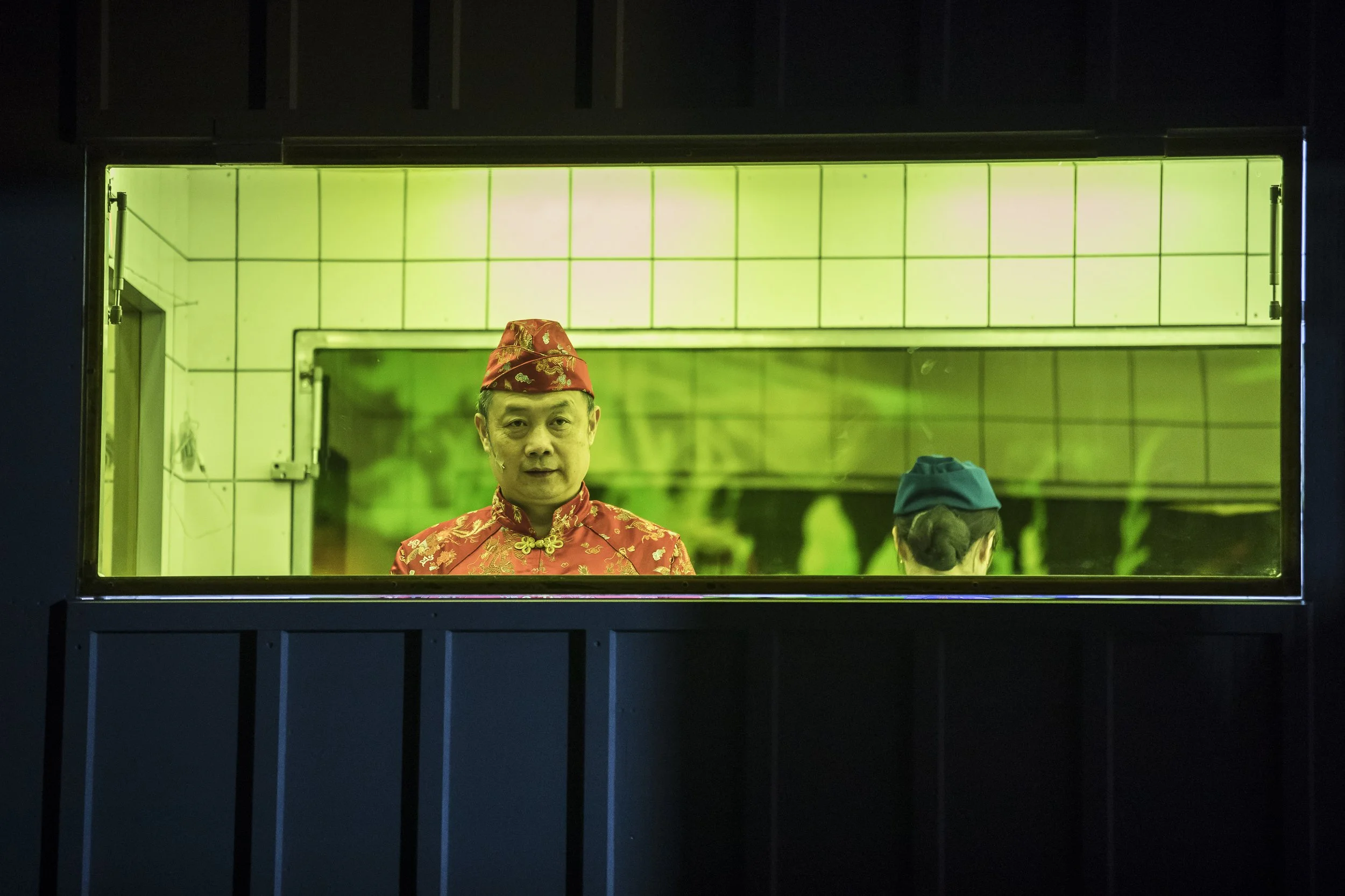
ROHTKO directed by tukasz Twarkowski, text & dramaturgy by Anka Herbut, produced by Dailes Theatre. UK premiere at the Barbican Theatre, Thu 2 - Sun 5 Oct 2025. Photographer credit: Arturs Pavlovs
ROHTKO was first performed in 2022 and is making its UK premiere at the Barbican this October. How has the production changed or developed since its debut, and do its questions about value, truth and authenticity feel more or less urgent now?
It’s interesting because the show has found relevance now around the development of AI and deepfakes. And the question of authenticity has become very urgent in our lives and we don’t really know how to deal with this. So there are a lot of angles you can view it from.
We’ve performed ROHTKO more than 80 times in different countries. It matures like wine over time, we are always in dialogue with the actors and the technical crew to keep it alive and it is a never ending process of finding new inspirations to feed our imaginations. Content wise it hasn’t change so much, but nowadays it reflects certain anxieties about realness that we are living in.
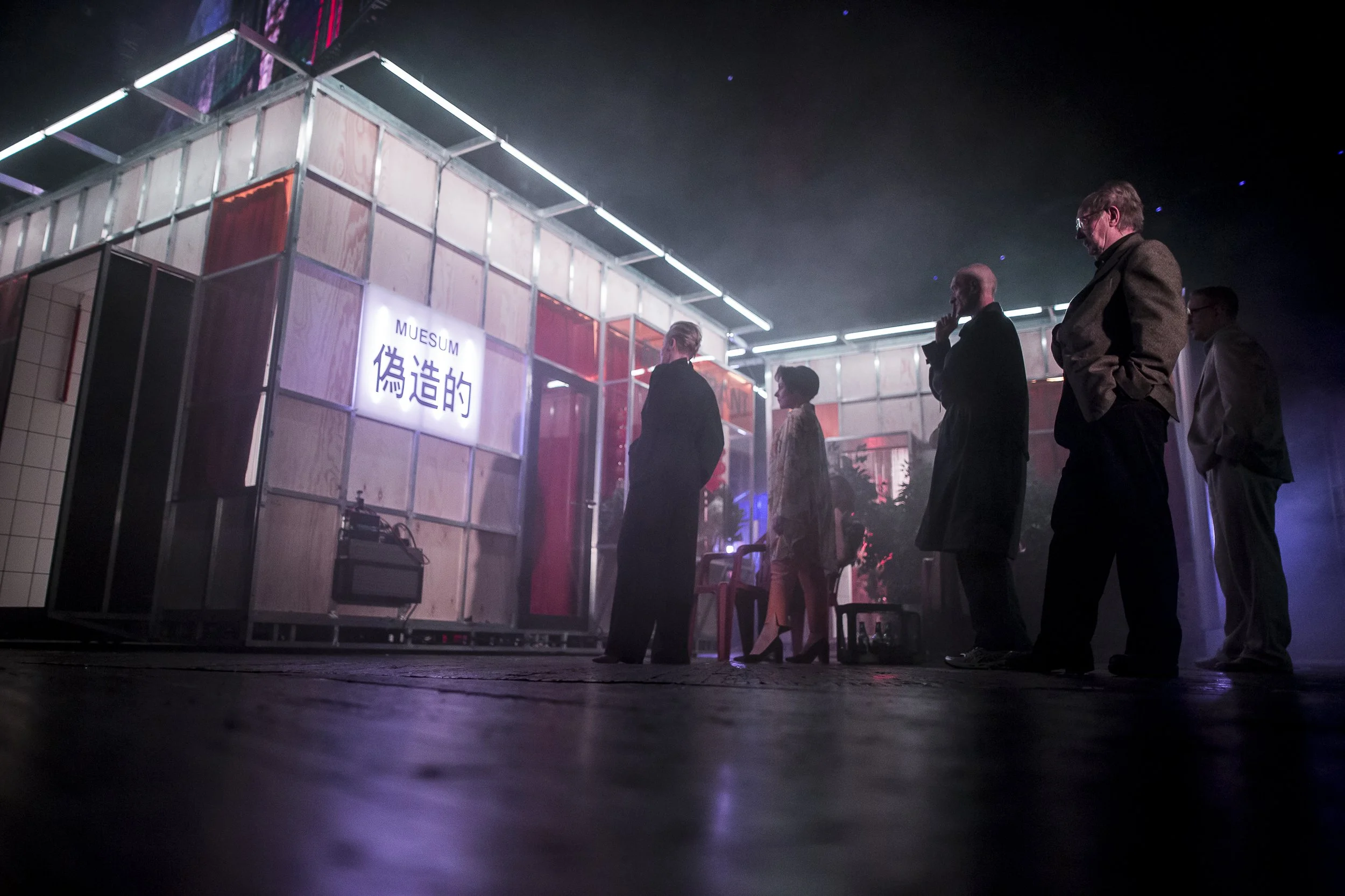
Arrivals & Departures by YARA + DAVINA. Image credit Paolina Varbichkova.
The [Quick] #FLODown:
Best life advice?
Don’t follow others’ advice
Last song you listened to?
Anxiety by Preoccupations
Last book you read?
Greek Lessons by Han Kang
Can’t live without…?
music + skydiving
What should the art world be more of and less of?
Less of business and more of tenderness
Ted Hodgkinson is Head of Literature & Spoken Word at Southbank Centre and oversees the seasonal literature programme as well as the annual London Literature Festival. He has judged awards including the BBC National Short Story Award and the Orwell Prize for political writing, and in 2020 he chaired the International Booker Prize…
Afra Nur Uğurlu is a visual artist and recent London College of Communication graduate whose practice bridges beauty, fashion, art, and cultural studies. In this interview, we discuss Hinterland, her zine exploring how the Turkish diaspora navigates and challenge es dominant representations…
Townsend Productions is marking the 50th anniversary of the Grunwick Strike (1976–1978) with the return of We Are the Lions, Mr Manager!, a powerful play written and musically directed by Neil Gore and directed by Louise Townsend. The production features Rukmini Sircar as Jayaben Desai. Ahead of the London run, we spoke to Neil Gore and Rukmini Sircar…
Danielle Brathwaite-Shirley lives and works between Berlin and London. Working predominantly in animation, sound, performance and video game development, and with a background in DIY print media and activism, the artist’s practice focuses on intertwining lived experience with fiction to imaginatively retell and archive the stories of Black Trans people…
Aaron Wright is a curator of contemporary performing arts, originally from the Midlands, and currently serves as Head of Performance & Dance at London’s Southbank Centre, a role he took on in 2023. Alongside his work at the Southbank Centre, he runs the queer performance club night Knickerbocker at The Yard Theatre in Hackney Wick…
Dr Lana Locke, Senior Lecturer at Camberwell College of Arts, University of the Arts London, is a multidisciplinary visual artist whose work spans sculpture, painting, drawing, video, and performance. Self-taught for over a decade before gaining postgraduate qualifications, Lana’s practice focuses on sustainability, materiality, and community engagement…
Judith Clark is a curator and fashion exhibition-maker, and currently Professor of Fashion and Museology at the University of the Arts London. She lectures on the MA Fashion Curation and is a founding Director of the Centre for Fashion Curation. From 1997 to 2002, she ran London’s first experimental fashion gallery in Notting Hill…
Lindokuhle Sobekwa is a South African photographer from Katlehong, Johannesburg. Since his first exhibition in 2013, his work on social issues and personal histories—like his photo essay Nyaope—has gained international recognition. A member of Magnum Photos, Sobekwa was recently awarded the 2025 Deutsche Börse Photography Foundation Prize for his project I carry Her Photo with Me…
Sol Bailey Barker is a multidisciplinary artist whose work explores the connections between ecology, mythology, and speculative futures. Through sculpture, sound, and installations, they blend ancient knowledge with emerging technologies to examine humanity’s relationship with the natural world…
Hanna Salomonsson is a London based Swedish ceramic artist. Following a career in landscape architecture, she re-trained in ceramics in 2018. She also holds a BA in Art History, and this combined with her landscape grounding provides a unique vantage point for her ceramic practice…
Lewis Walker is a London-born queer, non-binary movement artist. A former Great Britain gymnast and Acrobatic Gymnastics World Champion, they trained from age 6 to 21 before earning a degree in Contemporary Dance. Their work spans theatre, film, fashion, music, and the commercial sector. Walker continues to choreograph gymnastics competition routines for the Great Britain, Italian and French national teams…
Daniel is a curator-producer dedicated to the social impact of the arts and cross-sector collaboration. He is currently Creative Director & Chief Executive of Old Diorama Arts Centre (ODAC) in Euston, where he has strengthened the centre’s community connections amidst urban transformation…
Peter Bellerby is the founder of Bellerby & Co. Globemakers, a company renowned for its exquisite hand-crafted globes. Established in 2010, the company specialises in meticulously designed pieces that showcase exceptional craftsmanship, positioning Bellerby & Co. as a leader in the globe-making industry…
Gabriele Beveridge is known for her sculptural and conceptual practice that combines materials as diverse as hand-blown glass, photo chemicals, and found images…
Robyn Orlin is a South African dancer and choreographer born in Johannesburg. Nicknamed in South Africa "a permanent irritation", she is well known for reflecting the difficult and complex realities in her country. Robyn integrates different media into her work (text, video, plastic arts) to she investigates a certain theatrical reality which has enabled her to find her unique choreographic vocabulary…
Katrina Palmer, an artist known for exploring materiality, absence, and dislocation, recently spoke to us following her year-long residency at the National Gallery about her exhibition The Touch Report…
Enej Gala is an artist who splits his time primarily between London and his hometown of Nova Gorica, Slovenia. A graduate of the Academy of Fine Arts in Venice and the Royal Academy Schools (2023), Gala first gained our attention with Neighbour’s Harvest, an installation that cleverly combined puppetry and conceptual art…
David Ottone is a Founding Member of Award-winning Spanish theatre company Yllana and has been the Artistic Director of the company since 1991. David has created and directed many theatrical productions which have been seen by more than two million spectators across 44 countries…
Darren Appiagyei is a London-based woodturner whose practice embraces the intrinsic beauty of wood, including its knots, cracks, bark, and grain. Highly inspired by Ghanaian wood carving, Darren explores raw textures and new woods in his work…
Huimin Zhang is an artist specialising in 22K gold, known for her innovative craftsmanship. She combines various cultural techniques, including filigree, engraving, and European gold and silver thread embroidery, to create unique works…
Akinola Davies Jr. is a BAFTA-nominated British-Nigerian filmmaker, artist, and storyteller whose work explores identity, community, and cultural heritage. Straddling both West Africa and the UK, his films examine the impact of colonial history while championing indigenous narratives. As part of the global diaspora, he seeks to highlight the often overlooked stories of Black life across these two worlds.
Hannah Drakeford is a London-based interior designer known for her bold and colourful interiors. She transitioned from a 21-year retail design career to interior design, and has gained popularity on social media where she now shares creative upcycling tutorials and encourages individuality in home decor…
Shula Carter is an East London-based creative with a background in contemporary, ballet, and modern dance. She trained at the Vestry School of Dance and later at LMA London, where she developed skills in commercial, hip hop, and tap dance, alongside stage and screen performance…
Dian Joy is a British-Nigerian interdisciplinary artist whose work delves into the intersections of identity, digital culture, and the fluid boundaries between truth and fiction. Her practice is rooted in examining how narratives evolve and shape perceptions, particularly in the digital age.
Dian Joy is a British-Nigerian interdisciplinary artist whose work delves into the intersections of identity, digital culture, and the fluid boundaries between truth and fiction. Her practice is rooted in examining how narratives evolve and shape perceptions, particularly in the digital age.
John-Paul Pryor is a prominent figure in London’s creative scene, known for his work as an arts writer, creative director, editor, and songwriter for the acclaimed art-rock band The Sirens of Titan…
Jim Murray is an actor, director, conservationist and artist known for Masters of Air (2024) and The Crown (2016). Murray first came to prominence as an artist in 2023 with his acclaimed inaugural exhibition In Flow, where his dynamic abstract paintings were hung in conversation with John Constable’s The Dark Sid…
Anthony Daley is an abstract expressionist painter known for his vibrant, large-scale works that explore beauty through intense colour and light. His art bridges the past and present, drawing inspiration from the Old Masters as well as diverse sources like literature, science, poetry, and nature.
Rachel Kneebone’s work explores the relationship between the body and states of being such as movement, stasis, and renewal. Through her porcelain sculptures, she examines transformation and metamorphosis, reflecting on what it means to inhabit the body and be alive…
Saff Williams is the Curatorial Director at Brookfield Properties, bringing over fifteen years of experience in the arts sector…

With Six Nations 2026 starting on 5 February, London is packed with pubs, bars and restaurants showing every match…
Somerset House Studios returns with Assembly 2026, a three-day festival of experimental sound, music, and performance from 26–28 March. The event features UK premieres, live experiments, and immersive installations by artists including Jasleen Kaur, Laurel Halo & Hanne Lippard, felicita, Onyeka Igwe, Ellen Arkbro, Hannan Jones & Samir Kennedy, and DeForrest Brown, Jr…
This week brings fresh details from some of the UK’s most anticipated exhibitions and events, from Tate Modern’s Ana Mendieta retrospective and David Hockney’s presentation at Serpentine North to the British Museum’s acquisition of a £35 million Tudor pendant…
This week in London (2–8 Feb 2026) enjoy Classical Mixtape at Southbank, Arcadia at The Old Vic, Kew’s Orchid Festival, Dracula at Noël Coward Theatre, free Art After Dark, Chadwick Boseman’s Deep Azure, the Taylor Wessing Portrait Prize, and Michael Clark’s Satie Studs at the Serpentine…
SACHI has launched a limited-edition Matcha Tasting Menu in partnership with ceremonial-grade matcha specialists SAYURI, and we went along to try it…
Croydon is set to make history as the first London borough to host The National Gallery: Art On Your Doorstep, a major free outdoor exhibition bringing life-sized reproductions of world-famous paintings into public spaces…
February in London sets the tone for the year ahead, with landmark exhibitions, major theatre openings, late-night club culture and seasonal festivals taking over the city. From Kew’s 30th Orchid Festival to Tracey Emin at Tate Modern and rooftop walks at Alexandra Palace, here’s what not to miss in February 2026…
Tate Modern has announced that Tarek Atoui will create the next Hyundai Commission for the Turbine Hall. The artist and composer is known for works that explore sound as a physical and spatial experience…
Kicking off the London art calendar, LAF’s 38th edition at Islington showcased a mix of experimental newcomers and established favourites. Here are ten standout artists from London Art Fair 2026…
Discover a guide to some of the artist talks, as well as curator- and architecture-led discussions, to be on your radar in London in early 2026…
This week in London, not-to-miss events include the T.S. Eliot Prize Shortlist Readings, the final performances of David Eldridge’s End, the return of Condo London, new exhibitions, classical concerts, a film release, creative workshops, wellness sessions, and a standout food opening in Covent Garden with Dim Sum Library…
Plant-based cooking gets the Le Cordon Bleu treatment in a new series of London short courses…
January is your final opportunity to catch some of London’s most exciting and talked-about exhibitions of 2025. Spanning fashion, photography, contemporary sculpture and multimedia, a diverse range of shows are drawing to a close across the city…
As the new year begins, London’s cultural calendar quickly gathers momentum, offering a packed programme of exhibitions, festivals, performances and seasonal experiences throughout January. Here is our guide to things you can do in London in January 2026…
Condo London returns in January 2026 as a city‑wide, collaborative art programme unfolding across 50 galleries in 23 venues throughout the capital, from West London and Soho to South and East London. This initiative rethinks how contemporary art is shown and shared, inviting London galleries to host international…
The Southbank Centre has announced Classical Mixtape: A Live Takeover, a one-night-only, multi-venue event taking place in February 2026, bringing together more than 200 musicians from six orchestras across its riverside site…
This week in London features late-night Christmas shopping on Columbia Road, festive wreath-making workshops, live Brazilian jazz, mince pie cruises, theatre performances, art exhibitions, a Christmas disco, and volunteering opportunities with The Salvation Army.
Discover London’s unmissable 2026 fashion exhibitions, from over 200 pieces of the late Queen’s wardrobe at The King’s Gallery to the V&A’s showcase of Elsa Schiaparelli’s avant-garde designs and artistic collaborations…
Marking her largest UK project to date, Sedira’s work will respond to the unique architectural and historical context of the iconic Duveen Galleries, offering audiences an experience that merges the political, poetic, and personal…
This week in London, enjoy festive events including Carols at the Royal Albert Hall, LSO concerts, designer charity pop-ups, late-night shopping, art exhibitions, film screenings, foodie experiences, last-chance shows, and volunteer opportunities across the city…
Explore Belgravia this Christmas with a festive pub crawl through London’s most charming historic pubs, from The Grenadier’s cosy mews hideaway to The Nags Head’s quirky classic tavern…
From the joys of Christmas at Kew to the lively Smithfield meat auction, and from major concerts and ballets to intimate workshops and family-friendly trails, the city offers an extraordinary mix of experiences. This guide brings together the very best of Christmas in London…
This guide highlights some of the must-see art exhibitions to visit over the festive period in London, including the days between Christmas and New Year’s. From major retrospectives of international masters such as Kerry James Marshall, Wayne Thiebaud, and Anna Ancher, to engaging contemporary works by Danielle Brathwaite-Shirley, Jennie Baptiste, and Tanoa Sasraku…
London’s cultural scene, a gallery or museum membership is the perfect alternative to another pair of socks. From unlimited access to exhibitions and exclusive events to discounts in shops and cafés, these memberships offer experiences that can be enjoyed throughout the year, while also supporting the vital work of arts organisations…
Your guide to London’s can’t-miss events this week, 17–23 November 2025, from Cabaret Voltaire live at ICA to Ballet Shoes at the National Theatre and The Evolution of UK Jazz at the Barbican…
Charlotte Winifred Guérard is a London-based artist and recent graduate of the Royal Academy of Arts School, where she was recognised as a Paul Smith’s Foundation scholar for her artistic achievement. Her work has been exhibited at the Royal Academy, Coleman Project Space, Fitzrovia Gallery, Messums and Palmer Gallery, and she has completed prestigious residencies including…
This week in London, you can enjoy festive ice skating, Christmas lights, jazz and classical concerts, and a range of art exhibitions. Highlights include Skate at Somerset House, Christmas at Kew, the EFG Jazz Festival, and the Taylor Wessing Photo Portrait Prize 2025…


